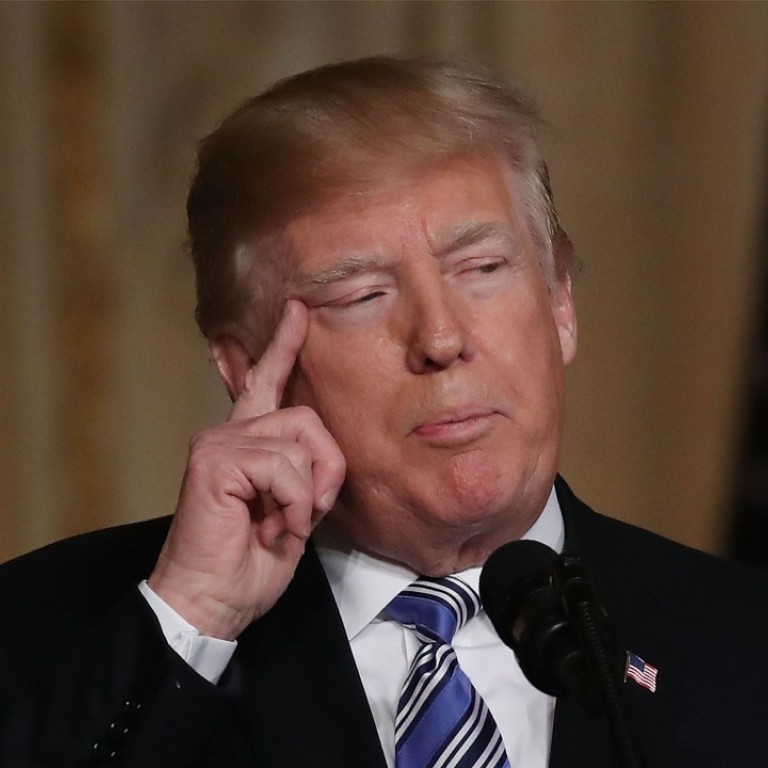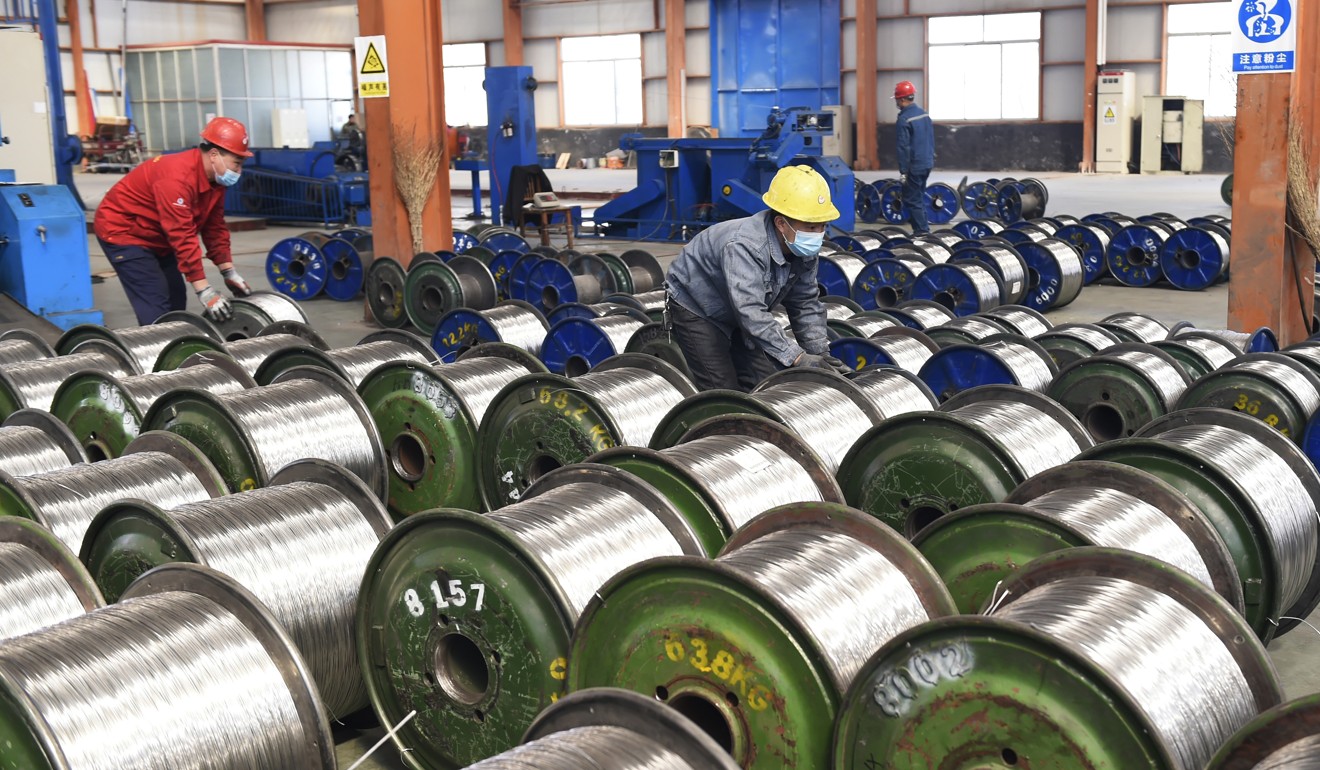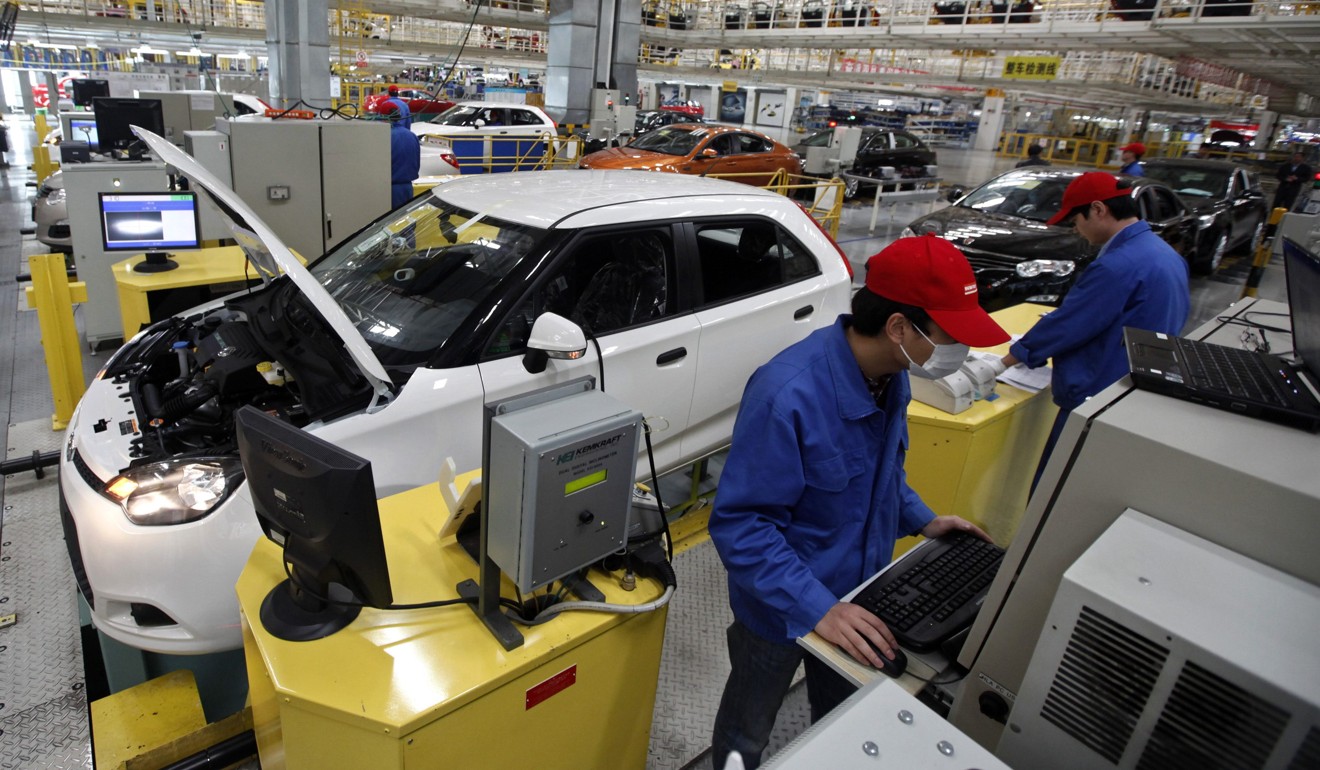
How Donald Trump is stealing a page from the populists’ playbook in his trade war with China
Richard Heydarian writes that the US president’s ‘dangerous dalliance’ with China trade is ‘mindless posturing’ driven by emotions rather than policy
The great political theorist Ernesto Laclau once argued that populists rely on “empty signifiers”. As far as US President Donald Trump is concerned, his dangerous dalliance with a trade war is a classic case of mindless populist posturing bereft of substantive consideration of actual consequences.
By using the unilateral imposition of tariffs as an instrument of negotiation, Washington is setting a perilous precedent that further erodes the global trade regime. Given the centrality of a free and open flow of goods, technology and ideas to the whole post-second world war order, what is at stake is no less than international peace and stability.
Trump’s trade policy is inherent to his brand of populism, driven by instinct and emotions rather than conscientious policy deliberation. Populists often tend to make random, poorly thought-out policy statements, leaving crucial details to the imagination of their helpless technocrats and senior officials.
They tend to prioritise media mileage and audience impact over the long-term consequences of their policies and pronouncements. Moreover, they tend to undermine institutions, both local and international, in the hope of honing their cults of personality as strong and decisive leaders.
All three elements have been apparent in Trump’s trade war against both allies and rivals. His imposition of steel and aluminium tariffs hurt not only rivals such as China and Russia, but also treaty allies such as Japan and Turkey.
Trump’s China tariffs may push up US TV and battery prices by 23pc
Yet, it’s China, the world’s second largest economy, which has the most to lose and, accordingly, vociferously has stood up to Trump. In recent weeks, Trump, citing alleged unfair trade practices, imposed new tariffs on more than 1,300 types of Chinese exports worth close to US$60 billion annually.

Earlier, he had imposed a 10 per cent additional tariff on aluminium and an extra 25 per cent duty on steel from overseas, citing national security considerations. His administration has since upped the ante by restricting investments by and technological cooperation with Chinese companies.
Most recently, it banned the sale of American components to giant Chinese telecommunications company ZTE Corp. It had already banned the usage of Chinese Huawei phones by government officials.
The problem with populists like Trump is that whenever they are faced with difficult geopolitical realities, they tend to go for reality television.
Yet, so many countries, from Mexico to Canada to Australia, have been exempted from the new tariffs that the policy’s very rationale has been put into question. Meanwhile, it has triggered a vigorous response by China, which threatened to impose a 25 per cent tariff on 106 types of American products worth up to US$50 billion.
In particular, China has zeroed in on imports of agricultural goods and cars, crucial sectors that have been the source of livelihood for millions of Trump’s supporters. As Nobel-laureate economist Joseph Stiglitz rightly warned, Trump’s trade policy “captures the world’s attention”, but “serious real problems go unaddressed”.
The correct response, if Trump truly cared about blue-collar and rust belt America, would be to address the threats to human employment posed by increased automation and restrictive labour market policies, which have undermined the rights and interests of working-class America.
Trump’s aggressive tax cuts at home and his pressuring China to open up its financial markets disproportionately benefit Wall Street’s elite, not ordinary Americans. Not to mention that trade wars only lead to increased consumer prices, which hurt poorer Americans, who spend much of their income on basic needs such as food.
As Singaporean Prime Minister Lee Hsien Loong has warned: “what is at stake is war and peace, and the security and stability of the world,” since America may eventually trigger a full-blown beggar-thy-neighbour policy among the world’s largest economies.
China ‘seeks firewall’ against Trump’s trade moves
Thankfully, China has responded with the right combination of firmness as well as self-restraint. As President Xi Jinping declared in his keynote speech at the Boao Forum: “the cold war mentality and zero-sum game are increasingly obsolete”. Xi vowed that his country’s “door of opening up will not be closed and will only open up even wider”.
In recent months, China has repeatedly expressed its openness to liberalising international access to its consumer and financial markets, especially as the country moves towards a more hi-tech, balanced and consumer-driven mode of production. Xi’s relatively conciliatory speech, emphasising the “overwhelming trend toward openness and connectivity”, seems to have temporarily put a pause on Trump’s trade offensive.

Soon afterward, the American president thanked the Chinese leader for his “words on tariffs and automobile barriers”. Trump said he hoped to “make great progress together” with the Asian powerhouse on the areas of difference with the US, particularly intellectual property rights, currency valuation and financial market liberalisation.
In another twist, the US president also has reconsidered his initial opposition to the Trans-Pacific Partnership Agreement. He has indicated his willingness to rejoin the negotiations if more favourable terms are put on the table.
US media mogul Bloomberg vows to stop Trump’s China trade war
A combination of domestic political backlash, including among essential allies and officials; China’s firm yet conciliatory response; and concerted resistance by allies globally seems to have forced Trump’s hand. Yet the problem with populists like Trump is that whenever they are faced with difficult geopolitical realities, they tend to go for reality television. The threat of trade war is far from over.
Richard Heydarian is a Manila-based academic and author

